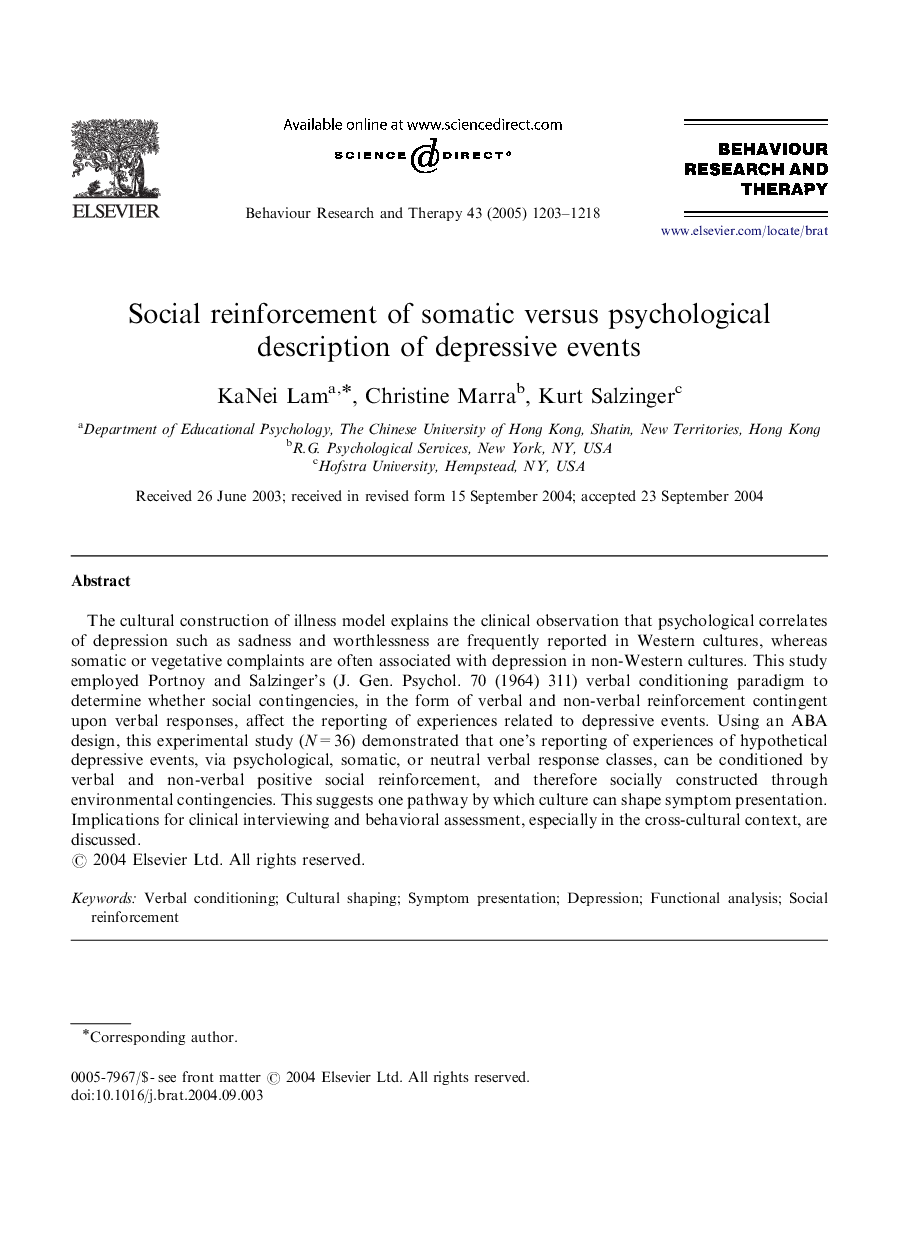| Article ID | Journal | Published Year | Pages | File Type |
|---|---|---|---|---|
| 10445101 | Behaviour Research and Therapy | 2005 | 16 Pages |
Abstract
The cultural construction of illness model explains the clinical observation that psychological correlates of depression such as sadness and worthlessness are frequently reported in Western cultures, whereas somatic or vegetative complaints are often associated with depression in non-Western cultures. This study employed Portnoy and Salzinger's (J. Gen. Psychol. 70 (1964) 311) verbal conditioning paradigm to determine whether social contingencies, in the form of verbal and non-verbal reinforcement contingent upon verbal responses, affect the reporting of experiences related to depressive events. Using an ABA design, this experimental study (N=36) demonstrated that one's reporting of experiences of hypothetical depressive events, via psychological, somatic, or neutral verbal response classes, can be conditioned by verbal and non-verbal positive social reinforcement, and therefore socially constructed through environmental contingencies. This suggests one pathway by which culture can shape symptom presentation. Implications for clinical interviewing and behavioral assessment, especially in the cross-cultural context, are discussed.
Related Topics
Health Sciences
Medicine and Dentistry
Psychiatry and Mental Health
Authors
KaNei Lam, Christine Marra, Kurt Salzinger,
